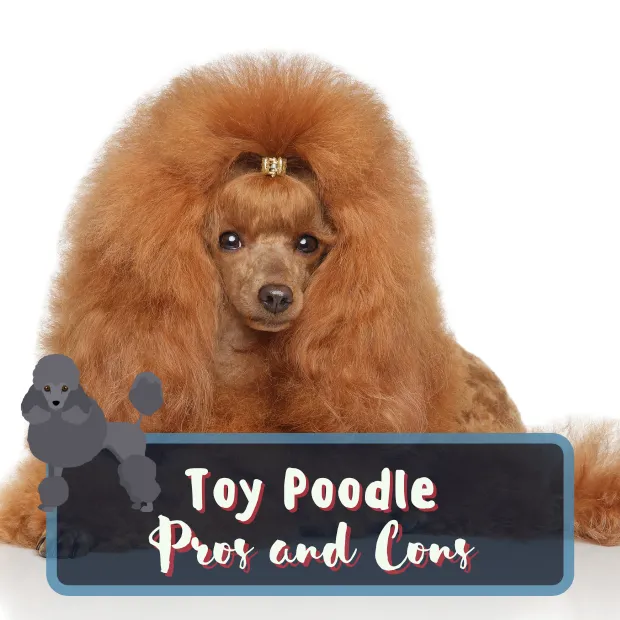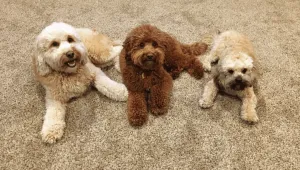The Toy Poodle is one of the most popular dog breeds in the world. People are drawn to their adorable looks and good temperament. But before you decide to add one to your family, it’s important to understand the Toy Poodle pros and cons you can expect when living with this breed.
Keep reading for a rundown on everything you need to know about owning a Toy Poodle!
Table of Contents
ToggleToy Poodle Pros and Cons
Toy Poodle Pros:
- Intelligent and easy to train. They learn new tricks quickly and enjoy showing off their skills.
- Active and playful dogs that make great companions for children.
- Low-shedding, making them a good choice for people with allergies.
- Come in a variety of colors, including black, white, cream, brown, apricot, and red.
Toy Poodle Cons:
- Require regular extensive grooming to keep their coat from matting.
- Small and delicate dogs, so they may not be suitable for families with small children who might accidentally hurt them.
- Can be prone to health issues like epilepsy, patellar luxation, and von Willebrand disease.
- Some can be vocal, so they may not be the best choice for people who live in apartments or other close quarters.
- One of the more expensive dog breeds.
If you’re considering adding a Toy Poodle to your family, be sure to do your research and talk to a vet or experienced breeder to make sure this is the right breed for you.
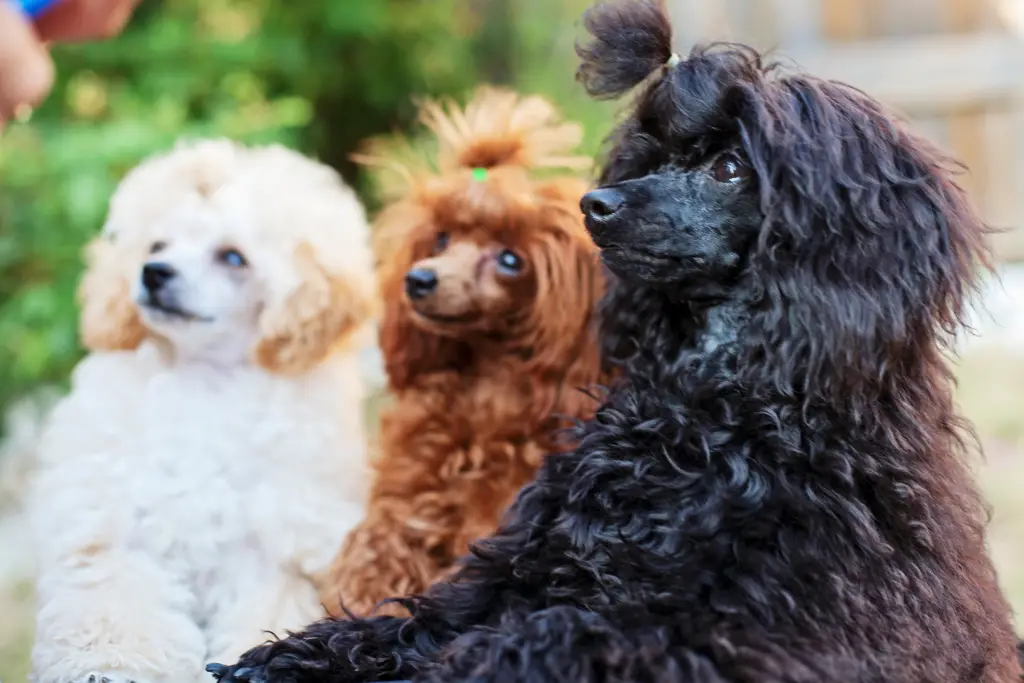
Size
Toy Poodles stand 8-11 inches tall at the shoulder and weigh 6-9 pounds.
Colors
Black, white, cream, brown, apricot, red, silver, and blue are all recognized colors.
Parti-colored poodles have more than one color in their coats but are not generally recognized for showing by most international kennel clubs.
Phantom-colored poodles have a base color with markings of another color on their face, legs, and chest.
Grooming needs
Toy Poodles have curly, dense coats that require regular grooming to prevent matting and keep their coats healthy and looking their best.
They should be brushed several times a week and clipped every 6-8 weeks. Toy Poodles also need to have their teeth brushed regularly and their nails trimmed periodically.
Do Toy Poodles Shed?
Toy Poodles are considered to be a low-shedding breed. This doesn’t mean they don’t shed at all – you will still find the occasional hair around your home – but it is much less than other breeds.
They are a good choice for people with allergies, but they still require regular grooming to prevent matting and tangles in their coat.
Are Toy Poodles Hypoallergenic?
While Toy Poodles are considered to be hypoallergenic, there is no such thing as a 100% hypoallergenic dog breed. Some people may be allergic to the proteins found in a dog’s saliva, dander, or urine.
The best way to find out if you’re allergic to a particular breed is to spend time with the dog and see if you have any reaction.
Life Expectancy
12-15 years.
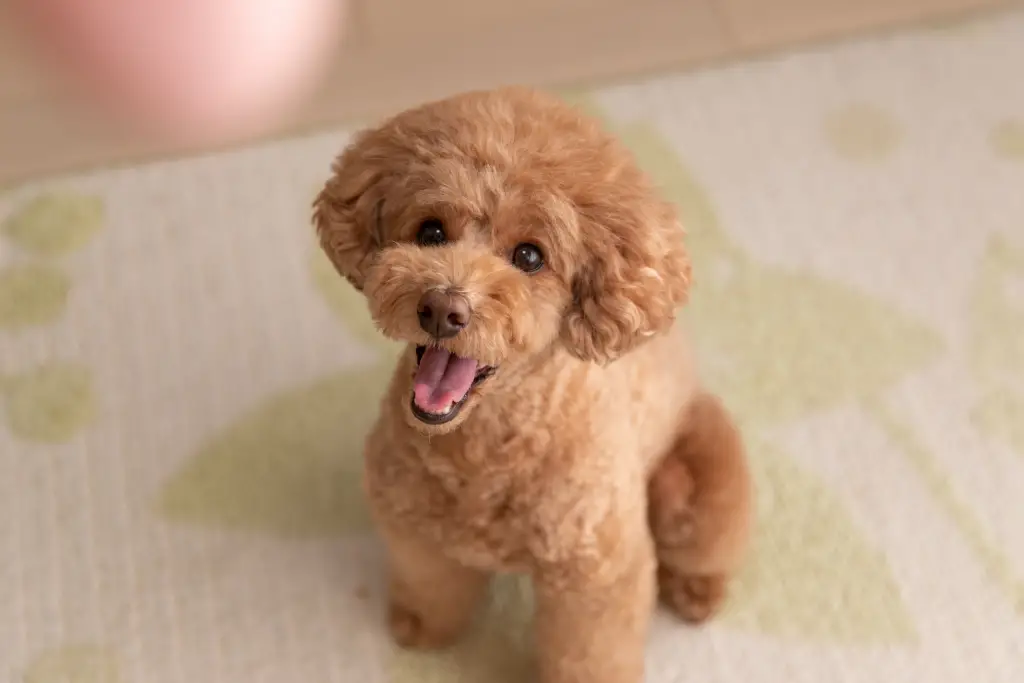
Health
Toy Poodles are a generally healthy breed. However, like all dogs, they are susceptible to certain health conditions. Be sure to talk to your vet about the best way to keep your Toy Poodle healthy and visit for regular check-ups.
Some health concerns that Toy Poodles may be prone to include patellar luxation, von Willebrand’s disease, epilepsy, and Legg-Calve-Perthes disease.
They are also susceptible to health issues that affect all small breeds, such as dental problems, tracheal collapse, and hypoglycemia.
History
The Toy Poodle is the smallest of the three Poodle breeds (Toy, Miniature, Standard). While the exact origins of the Toy Poodle are unknown, it’s believed that this breed was developed in Germany, where they were used as water dogs and companions.
Toy Poodles were brought to France in the 1600s, where they quickly became popular among the upper class. In the 1800s, Toy Poodles were introduced to America and have been one of the most popular dog breeds ever since!
The Toy Poodle is a descendant of the Standard Poodle, which is thought to be a cross between the Barbet (a water dog from France) and the German Water Spaniel. The Standard Poodle was originally bred as a hunting dog, but their intelligence and trainability soon made them popular as companion dogs as well.
Activity Level
Toy Poodles are active dogs that need plenty of exercise to stay healthy and happy. A daily walk or play session is a great way to keep your Toy Poodle fit and healthy.
Temperament
Intelligent, active, playful. While they may be small in size, toy poodles are big on personality.
The first thing you should know about toy poodles is that they are extremely intelligent. This means that they are quick to learn tricks and commands, but it also means that they can be quite mischievous.
They are active little dogs, and their playfulness can sometimes get them into trouble. However, their loving and devoted nature makes them wonderful companions, and they will quickly bond with their owners.
Puppies generally know who their owner is within a few weeks, and they will typically become attached to one person in the family. They thrive on human interaction and love being part of the family.
If you’re looking for a pet that will provide you with years of companionship, a toy poodle might be the perfect choice.
Training
Toy Poodles are intelligent dogs that learn new tricks quickly. They enjoy showing off their skills, so training is a great way to bond with your Toy Poodle. They are easy to train and excel at parkour and in obedience and agility trials.
Crate training is recommended for Toy Poodles, as they are small dogs and may be vulnerable to injury if left unsupervised.
Compatibility with Kids
Toy Poodles are good with children when properly socialized. They are active and playful dogs that enjoy playing games and roughhousing.
However, because they are small dogs, they may not be suitable for families with very young children who might accidentally hurt them.
Compatibility with Other Pets
Toy Poodles are generally good with other dogs and pets when properly socialized. They may chase smaller animals, so it’s important to introduce them to other pets at an early age.
With Strangers
Toy Poodles are generally friendly with strangers and make great companion dogs. However, they may bark if they feel threatened or uneasy.
Barking
Toy Poodles can be quiet dogs with the right socialization and training, but as with all dogs, they may bark when they feel threatened or when someone unfamiliar comes to the door.
If your Toy Poodle is overly vocal, check out the Tackling Reactivity online course bundle by Spiritdog Training.
As Puppies
Toy Poodle puppies are small and delicate. They require gentle handling and should be socialized early on to prevent them from becoming timid or fearful.
Toy Poodle puppies are also known to be very active and playful, so they need plenty of exercise and mental stimulation to prevent them from getting bored or destructive.
This online course on Mastering Potty Training can help Toy Poodle puppy owners learn how to properly train their pups, providing them with the knowledge and skills needed to keep their pet healthy and happy.
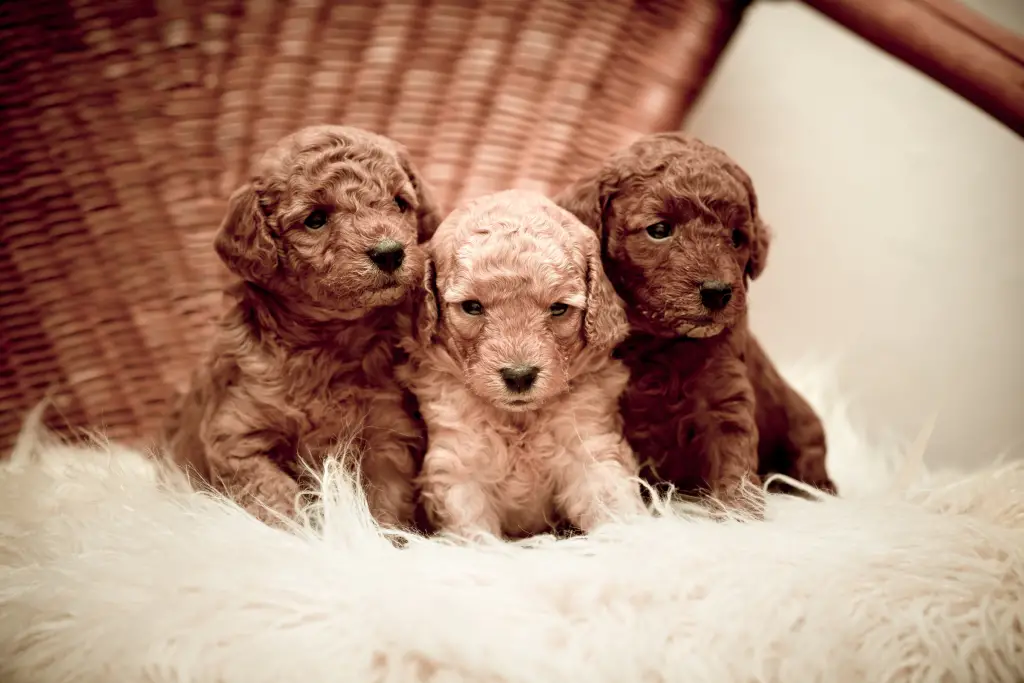
The Ultimate Puppy Bundle online course is an ideal resource for new Toy Poodle owners, providing detailed guidance on how to properly care for and train their new puppy.
Similar Breeds
- Miniature Poodle
- Standard Poodle
- Bichon Frise
- Havanese
- Cavalier King Charles Spaniel
- Yorkshire Terrier
If you’re considering a Toy Poodle, be sure to do your research and talk to a reputable breeder or your vet to learn more about this breed.
Toy Poodles are active, intelligent dogs that make great companion animals. However, they may not be suitable for everyone, so it’s important to make sure that this is the right breed for you and your family.
Check out our article on poodle mixes, also known as Doodle dogs, next.
References: https://www.akc.org/dog-breeds/poodle-toy/

